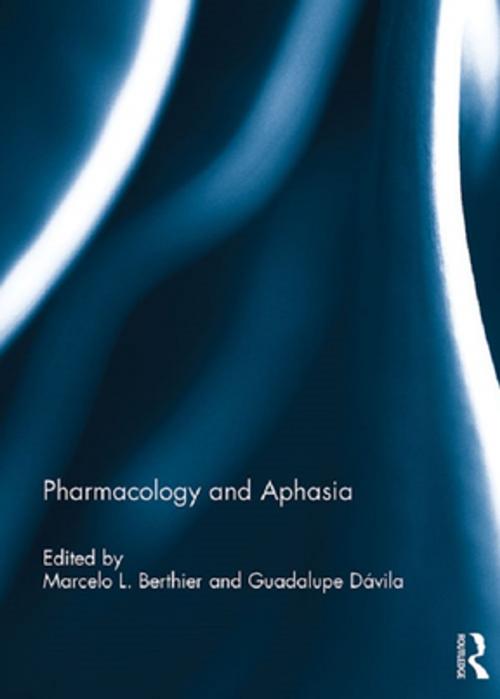Pharmacology and Aphasia
Nonfiction, Health & Well Being, Psychology, Neuropsychology, Cognitive Psychology| Author: | ISBN: | 9781317628293 | |
| Publisher: | Taylor and Francis | Publication: | April 14, 2016 |
| Imprint: | Routledge | Language: | English |
| Author: | |
| ISBN: | 9781317628293 |
| Publisher: | Taylor and Francis |
| Publication: | April 14, 2016 |
| Imprint: | Routledge |
| Language: | English |
This book provides clinicians and researchers with the current state-of-the-art on the pharmacological treatment of aphasia. The focus is on the role of different pharmacological agents to improve aphasia associated with stroke and to attenuate language dissolution in degenerative conditions like Alzheimer’s disease and primary progressive aphasia. This book is the first one that addresses these topics. Leaders in the field provide tutorial reviews on how focal brain injury and degeneration impact on the normal the activity of different neurotransmitter systems and how drugs combined or not with rehabilitation can improve language and communication deficits. This is nicely illustrated by studies on single cases and case series describing the beneficial effects of interventions combining drugs with evidence-based rehabilitation techniques. Throughout the volume, future directions to refine testing aimed to detect gains in language and non-language cognitive deficits promoted by drug treatment are highlighted. This book isessential reading for anyone interested in the rehabilitation of aphasia and related cognitive disorders.
This book was originally published as a special issue of Aphasiology.
This book provides clinicians and researchers with the current state-of-the-art on the pharmacological treatment of aphasia. The focus is on the role of different pharmacological agents to improve aphasia associated with stroke and to attenuate language dissolution in degenerative conditions like Alzheimer’s disease and primary progressive aphasia. This book is the first one that addresses these topics. Leaders in the field provide tutorial reviews on how focal brain injury and degeneration impact on the normal the activity of different neurotransmitter systems and how drugs combined or not with rehabilitation can improve language and communication deficits. This is nicely illustrated by studies on single cases and case series describing the beneficial effects of interventions combining drugs with evidence-based rehabilitation techniques. Throughout the volume, future directions to refine testing aimed to detect gains in language and non-language cognitive deficits promoted by drug treatment are highlighted. This book isessential reading for anyone interested in the rehabilitation of aphasia and related cognitive disorders.
This book was originally published as a special issue of Aphasiology.















